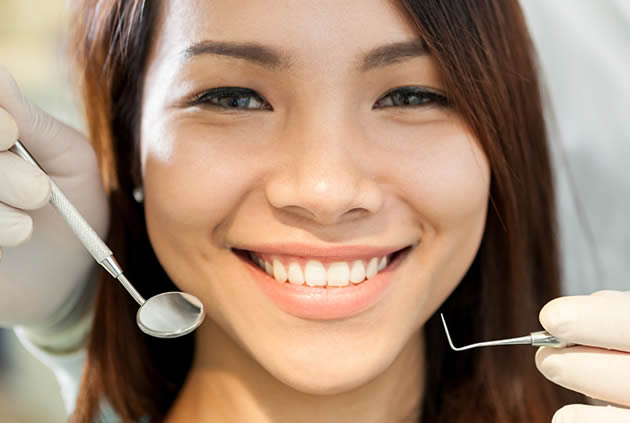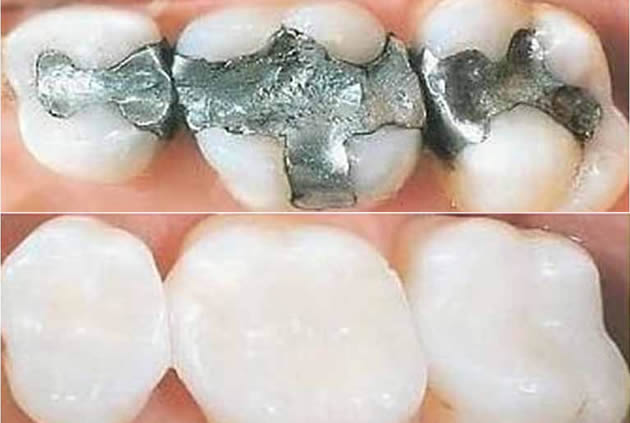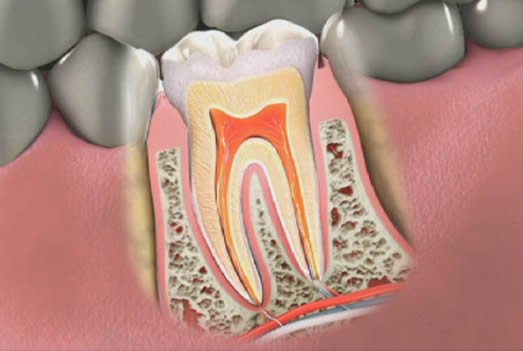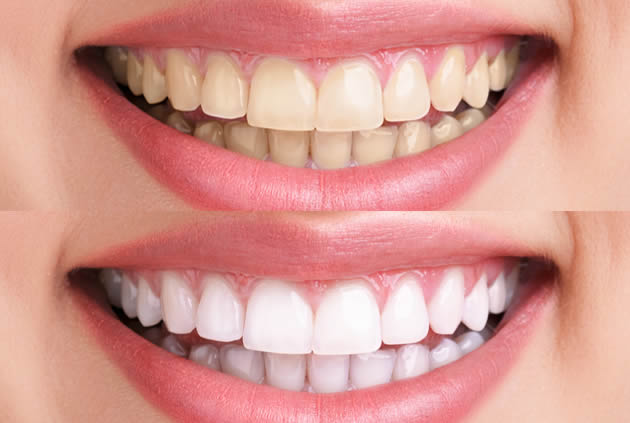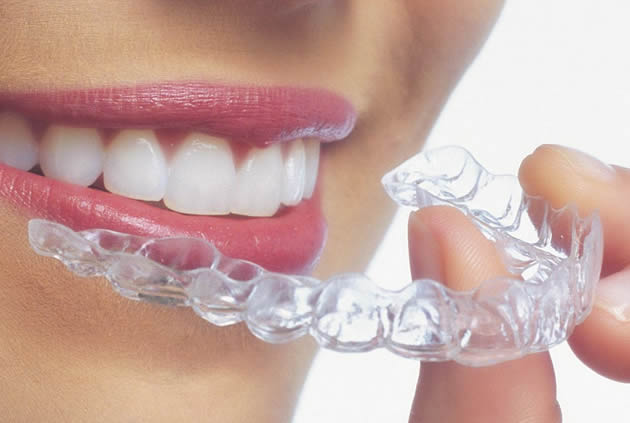
One of the greatest gifts you can give yourself is taking care of your oral health throughout your life. Practicing a consistent dental hygiene routine and maintaining regular visits to your general dentist are the best ways to increase your chances of a beautiful, healthy smile.
General dentists focus on preventive care and treating minor problems before they have a chance to worsen into serious issues. Even if you regularly brush and floss your teeth, plaque and tartar can be quick to develop. A dentist has the necessary tools and training to remove damaging deposits before they harm your smile. In addition to professional cleanings and examinations, most general dentists fill cavities, perform root canals, whiten teeth, and even offer additional cosmetic dental procedures like dental implants or veneers.
One of the main reasons for routine examinations is to identify various problems. One common issue that you want your general dentist to catch early is gum disease. When it is treated soon after it starts, you are more likely to avoid bone deterioration or tooth loss. The early stage of gum disease is called gingivitis and can be handled by your dentist with simple techniques. If it advances to periodontitis, that’s when bone or tooth loss become a possibility and more invasive procedures like scaling or root planing may be required.
Once you make your dental appointment, which is typically recommended every six months, make sure you keep your scheduled visit. Many patients fall victim to scheduling appointments and then cancelling, not realizing how important seeing your general dentist can be. If you have dental insurance, you can even use your dental benefits for examinations and treatments. This office accepts Blue Cross/Blue Shield of Louisiana, MetLife, and Cigna.
Choose a qualified general dentist and establish a long-term relationship now, so that you can enjoy your healthy and appealing smile for years to come.
Our dental office is located in Baltimore

Severely damaged, injured or diseased teeth can lead to not only cosmetic problems with your smile, but also functional ones. Your dentist may recommend dental crowns or dental bridges to treat your dental issues.
Dental crowns are a restorative dental therapy that covers the affected tooth completely, serving as the new outer surface of the tooth. A dental crown maintains the natural roots of a tooth and can prevent extraction. A dental bridge fills the gap left by one or more missing teeth and is affixed to bordering teeth with an anchoring crown.
Both dental crowns and dental bridges are made from a variety of materials that can be designed to match the color of your surrounding natural teeth. As opposed to removable prosthodontics such as full or partial dentures, dental crowns and bridges are permanently bonded to existing teeth or dental implants, allowing them to function and appear as natural teeth.
Dental crowns and bridges have a number of advantages and benefits, such as:
- Dental crowns protect the natural tooth after a root canal therapy, helping to prevent bacteria re-infecting the tooth that could lead to extraction.
- Dental bridges restore gapped or missing teeth, providing support to the surrounding teeth, preventing them from shifting in to fill the empty space and affecting your speech, bite and smile.
- Your dentist can typically place dental crowns and bridges in as few as two appointments.
- Dental crowns and bridges are both long-lasting, durable therapies, designed to protect your natural tooth for years to come.
- Dental crowns prevent bone loss by preserving the natural tooth roots, thereby stimulating the jawbone, preventing resorption, or shrinkage, of the bone following extraction.
If you have questions about what a dental crown or bridge can do to improve the form and function of your smile, talk to your dental professional today. You can restore your healthy smile and preserve it for years to come with a dental crown or dental bridge treatment.
We treat patients from Baltimore and the surrounding area

Did you know that it takes fewer muscles to smile than frown? This powerful tool often gets lost in the busyness of our lives. Not only is smiling easier on your face, but it can significantly improve your mood and give somebody else’s day a lift. The benefits of smiling include:
Connects you with other people
When you share a smile with another person, you form an instant bond. By boosting that individual’s mood, you can reduce stress levels and possibly encourage that person to try on a smile. Actually, you can use a smile as currency to successfully navigate awkward social situations and gather any assistance you need.
Changes your perspective
If you feel anger or stress, smiling can give your attitude a much-needed adjustment. Typically, smiling enables your body to release endorphins, wonderful chemicals that make you feel happy.
It doesn’t cost a thing
Often, we get busy and don’t have the time, energy, or resources to help others. Your smile brightens the lives of anyone who sees it and it only takes a minute or less.
Helps fight illness
People who smile a lot tend to be more optimistic, which can promote a stronger immune system and keep you healthy.
Why not smile?
Try to remember that if you don’t smile, your other options are frowning or wearing a blank expression across your face. Given those choices, smiling seems like the best alternative.
Boosts your confidence
When you smile, you often walk taller and carry yourself in a more self-assured manner.
Smile makeover dentist in Baltimore

Most people are well aware certain foods are bad for teeth, but did you know some are very good for oral health? Listed below are just a few of the foods that could help your teeth and gums stay in tip top condition.
Salmon
Salmon is packed full of vitamin D which helps your body to absorb calcium from other foods, keeping your teeth and bones strong and healthy.
Onions
Onions might give you temporary bad breath, but they also contain sulfur that lowers the amount of decay causing bacteria in your mouth.
Strawberries
Strawberries are high in fiber and vitamins C, ensuring your gums are able to repair themselves and fight infection.
Pineapple
Pineapple is also high in vitamins C as well as an enzyme called Bromelain which helps promote healing. In addition pineapple increases saliva production, helping to wash away excess bacteria and sugars that could cause disease.
Quinoa
This fashionable grain is full of minerals including magnesium, manganese, phosphorus and calcium, all of which help strengthen your teeth.
Sesame Seeds
Sesame seeds contain plenty of calcium, helping to strengthen your teeth.
Shiitake Mushrooms
Shiitake mushrooms not only taste delicious, but also contain something called Lentinan which helps prevent the growth of bacteria in your mouth.
Wasabi
Wasabi is a type of Japanese horseradish that contains particular compounds that inhibit the growth of bacteria in your mouth.
Sea Salt
Sea salt contains numerous different minerals that help strengthen teeth.
Xylitol
Your dentist in Reno may recommend chewing xylitol gum after every meal as this ingredient helps inhibit bacterial growth, reducing the risk of gum disease and cavities.
Stevia
Ordinary sugar promotes bacterial growth, increasing acidity in the mouth. Stevia is a natural sweetener that doesn’t have this effect.
Of course a great diet is only half the story, and needs to be backed up with professional dental care from your dentist in Reno, and great daily dental care at home.
Visit our Baltimore dental office for a dental cleaning.

Though sports drinks and energy drinks may provide refreshment after a workout or keep you awake to study, they can also do serious damage to your teeth. People often think of these drinks as healthy alternatives to soda, but that’s not the case. In fact, research shows that these beverages are up to 10 times worse for your oral health than cola.
The issue with sports and energy beverages comes from the high acidity. Manufacturers add acid to these drinks to balance the sugar. Even more than soft drinks, the acid in sports and energy beverages can erode tooth enamel, which increases the odds of cavities. Once teeth are weakened by decay, you become more susceptible to future problems down the road.
Another reason sports and energy drinks are problematic is the way people consume them. Because most individuals sip on them throughout the day, teeth are continuously exposed to the acid in the beverages. To minimize the risks to your oral health, consider these tips:
- Use a straw when you consume these beverages because it restricts the amount of liquid that gets on your teeth.
- Chew sugar-free gum, which promotes saliva production and rinses the acid from your teeth.
- Brush your teeth right after drinking sugary beverages to remove any residue and keep teeth healthy.
- Make H2O your first choice. Consuming lots of water and limiting intake of sodas, sports beverages, or energy drinks will help you stay hydrated and promote good oral health.
Family and general dentist in Baltimore

Across drugstore and grocery aisles, toothpaste options line the shelves. Brushing plays an important part in maintaining dental hygiene. With all the choices, you may feel like it’s a tough to make a decision. Knowing the difference between whitening toothpaste and natural toothpaste can help you decide the best option for your smile.
Cavity-fighting toothpaste
When used correctly, all toothpastes ward off cavities by removing plaque from teeth. Choosing toothpaste with fluoride will protect enamel from erosion and strengthen your teeth. Children under six shouldn’t use fluoride toothpaste because they can ingest too much and end up with white spots on their teeth from overexposure to the fluoride.
Whitening toothpaste
Although these options will remove staining, whitening toothpastes don’t work as well as professional teeth whitening. For temporary results and a brighter appearance, many people swear incorporate whitening toothpaste into their hygiene routines.
Antibacterial toothpaste
Some of the newer products have an antibacterial agent called triclosan that may help protect gums from the bacterial infections that cause gum disease. Since these toothpastes haven’t been on the market that long, the jury is still out on their effectiveness.
Natural toothpaste
Found in most health food stores, all-natural toothpastes are typically fluoride-free. Often, natural toothpastes contain ingredients such as peppermint oil, myrrh, or aloe to clean teeth and freshen breath.
Toothpaste for sensitive teeth
If eating ice cream or drinking coffee causes tooth pain, toothpaste designed to minimize sensitivity might be good for you. These compounds work by desensitizing teeth and blocking the tubules that reach the nerves in your teeth.
If you live in the Baltimore area contact us today












